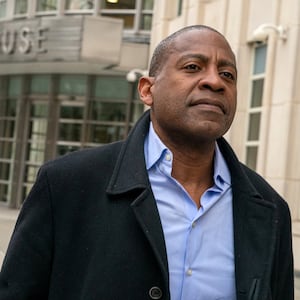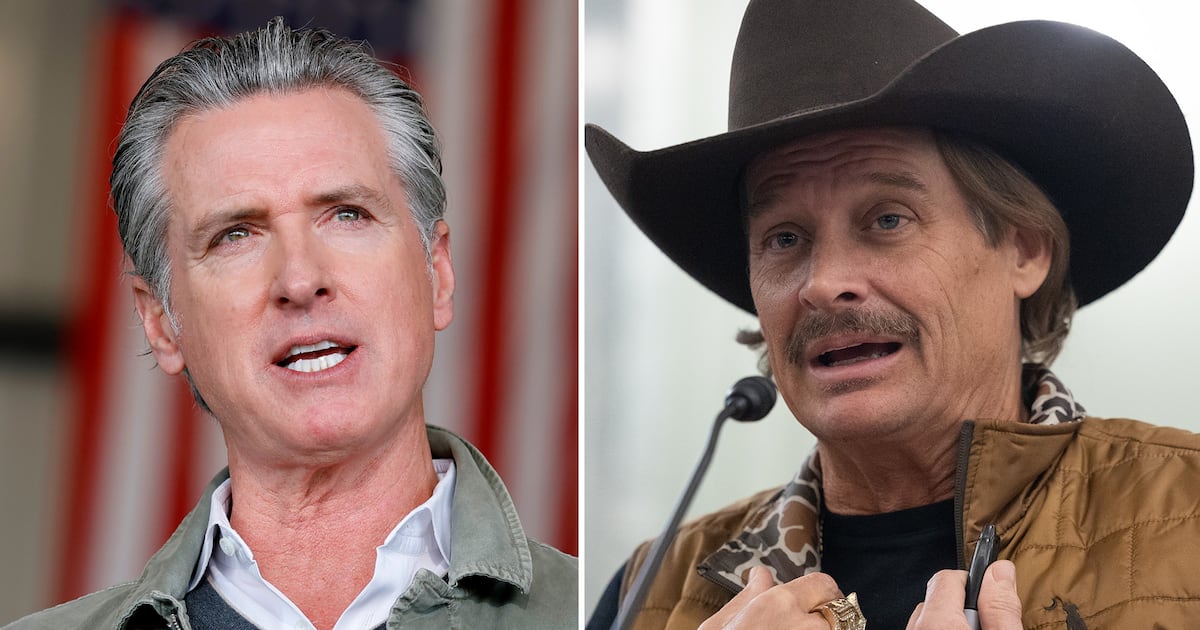Federal prosecutors say they have “significant authenticity concerns” about nearly half of the defense exhibits submitted by Ozy Media founder Carlos Watson just days ahead of his trial on fraud charges stemming from the alleged use of bogus documents to dupe lenders and investors.
“The authenticity concerns are especially acute here because the government anticipates that it will prove at trial, among other things, that the defendants conspired to falsify and forge business agreements on numerous occasions, including by changing dollar figures and modifying other key terms to make them appear more favorable to the company,” states a May 27 letter from the U.S. Attorney’s Office to U.S. District Judge Eric R. Komitee. “At this late stage of the case, the government has no realistic means of confirming that the agreements the defendants have identified in its latest disclosure are accurate and authentic.”
Watson, 53, was arrested in February 2023 and charged with conspiracy to commit securities fraud, conspiracy to commit wire fraud, and aggravated identity theft. His trial is scheduled to begin Wednesday in Brooklyn federal court.
Watson and his legal team were supposed to turn over the materials in question by May 10, according to the trial docket. Komitee now appears to have lost patience with Watson’s attorneys, excoriating them in a Monday ruling over what he declared “only the latest instance of the defense's failure to comply with its discovery obligations and court orders.”
“The Court will consider appropriate remedies in the coming days,” Komitee wrote.
Most troubling, however, is the possibility that the latest tranche of documents supplied by Watson’s team may be riddled with fakes, according to the prosecutors’ letter.
Their list of exhibits included a “Created Date/Time” column, and of 250 total, 117 of them were “created” between May 24-26, 2024, the letter says. Yet, all 117 of the documents “purport to be contracts, insertion orders and other agreements that Ozy had with third parties over the period 2016-2022,” according to the letter.
“It should be noted that several other contracts included as defense exhibits have ‘created’ dates at or near the time of the purported contract itself, so this does not appear to be an issue where all the documents were simply saved to a new folder or scanned in the past three days,” prosecutors point out in a footnote.
The government now says it wants answers about the questionable metadata, as well as why these latest exhibits never came to light until now, “notwithstanding the defendants’ claim that their May 16, 2024 exhibit list of over 6,300 items ‘consist[ed] of the entire universe of documents that could be offered by the defendants at trial.’”
Prosecutors first requested the materials in a discovery letter dated April 21, 2023, more than a year ago. They accuse defense lawyers of “gamesmanship” and say their “moving of the goalposts” is part of a “larger pattern” of backing government attorneys into a corner at the last second.
Beyond the allegedly phony documentation singled out by prosecutors, the letter contends the rest of the materials handed over by the defense “continues to include documents that are plainly irrelevant and inadmissible.”
It claims prosecutors have flagged “multiple duplicates (including one email that appears to be included on the defense list four times);” documents that are entirely blank, save an unrelated logo from a signature block; more than a dozen contracts and insertion orders from 2016, which the letter says is “well before the charged conspiracy;” five contracts and insertion orders from 2022 and 2023, which falls after the time period during which Watson is accused of breaking the law, and an “exact copy” of a previously submitted Excel spreadsheet “which was created after-the-fact and is replete with multiple levels of hearsay.”
“Producing these 185 documents to the government after jury selection, late at night on the Sunday before trial is set to begin, approximately ten months after the order to compel, takes sandbagging and flouting the Court’s orders to the extreme,” the letter states. “At a minimum, these 185 documents should be precluded on this basis.”
Watson’s two alleged co-conspirators, Ozy COO Samir Rao and Chief of Staff Suzee Han, pleaded guilty in April 2023. Prosecutors say the three devised and carried out a scheme to deceive investors and banks out of tens of millions of dollars by misrepresenting the size and scope of Ozy’s business, such as financial results and audience size. Among other things, Watson and Co. allegedly directed Ozy employees to forge their signatures on phony contracts to make the company look more successful than it actually was, and at least once impersonated a YouTube executive on a conference call with Goldman Sachs’ asset management division.
In 2019, Ozy’s then-CFO quit after she said Watson and Rao leaned on her to submit fake paperwork for a bank loan. In her resignation email, the exec told the pair, “[T]his… is illegal. This is fraud. This is forging someone’s signature with the intent of getting an advance from a publicly traded bank. To be crystal clear, what you see as a measured risk—I see as a felony.”
Ozy announced in October 2021 that it would be shutting down over reports of fraudulent activities, and officially ceased operations in March 2023.
Watson has pleaded not guilty. If convicted, he faces up to 37 years in prison.








